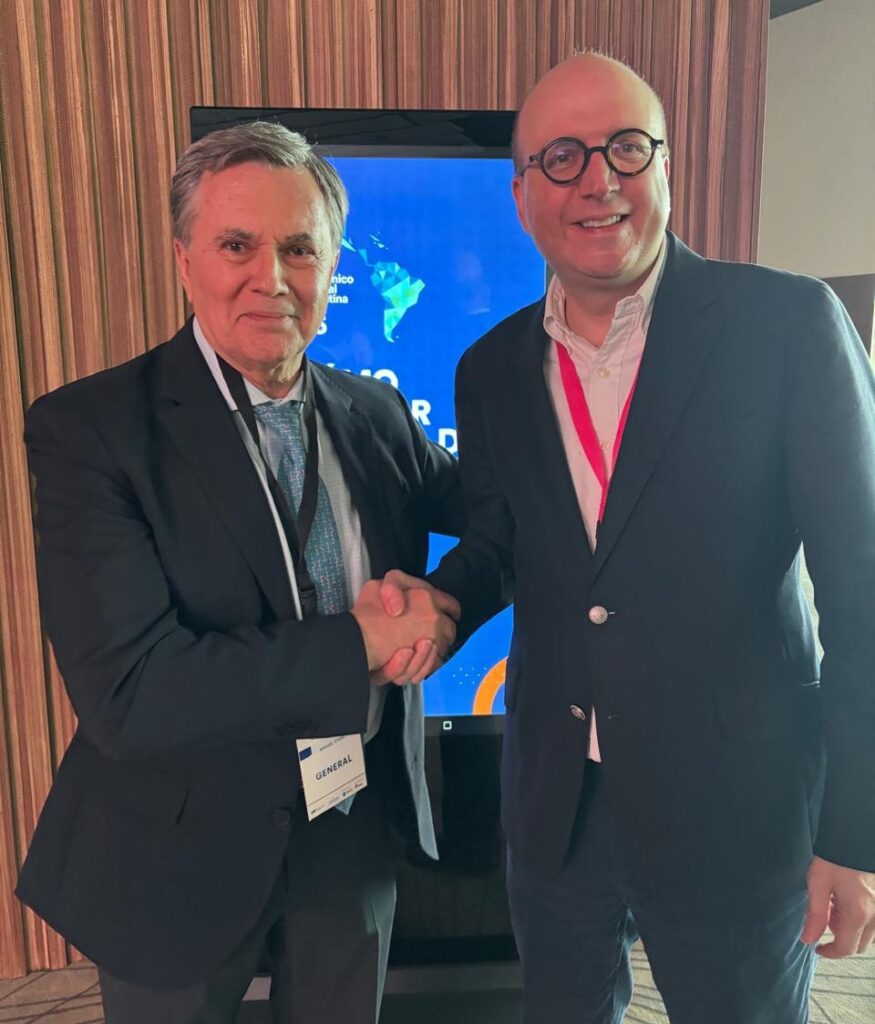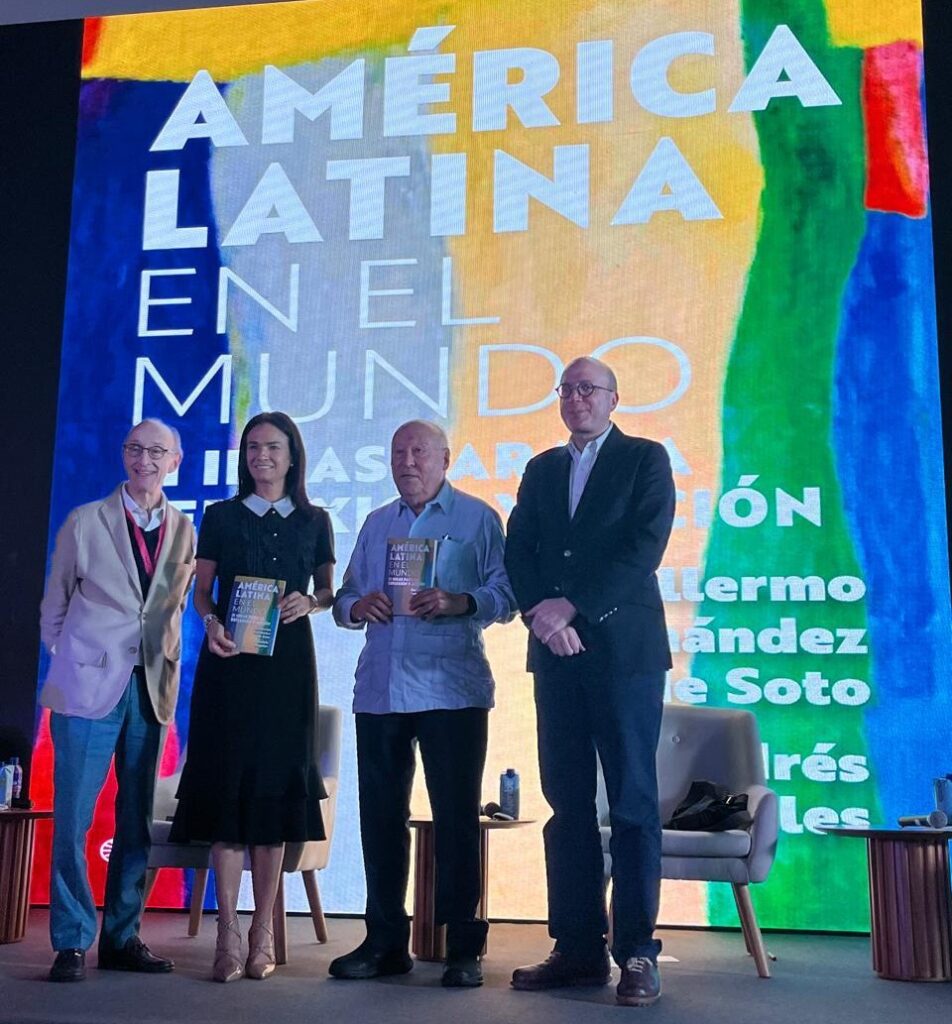
Panama City, 4 February 2025 (IICA) – Latin America must speak with a single voice and work in unison to gain relevance on the international stage. This is one of the key messages of a book on the region’s main challenges that was presented during the International Economic Forum on Latin America and the Caribbean and in which the Director General of the Inter-American Institute for Cooperation on Agriculture (IICA), Manuel Otero, is featured.
Written by Andrés Rugeles, a distinguished professional in the field of international relations, the book was launched in Panama City during the forum organized by CAF-Development Bank of Latin America and the Caribbean. In attendance were presidents and world leaders along with industry representatives, academics, businesspeople and government and international authorities.
In addition to the author, Enrique García, former Executive President of CAF; Isabel de Saint Malo, former Vice President of Panama; and Guillermo Fernández de Soto, former Minister of Foreign Affairs of Colombia, also spoke at the launch event.
Entitled “América Latina: la visión de sus líderes”, the book is comprised of 30 interviews and 55 articles by authorities, academics and experts in the region. Otero was interviewed about food security challenges in the region.
During the launch event, the speakers pointed out that these are times of great uncertainty and changes in global geopolitics, and that countries in the region must therefore take collective action with great caution.
Rugeles considered that Latin America must be on the same playing field with other global stakeholders, respecting international law and democratic principles, and refraining from taking sides in disputes between major global powers.
The book was prepared by the University of Oxford and the London School of Economics, and is divided into six thematic areas: poverty and inequality, growth and productivity, environment, democracy, regional integration and international insertion. Among the interviewees are thirteen heads of state from Latin America and the Caribbean, five ministers, four presidents of multilateral banks, two heads of international agencies and six prominent journalists.
Systems that are not failing
In the book, Otero explains that the region’s agrifood systems have contributed to reducing hunger, generating employment and increasing exports, thereby improving other economic and social dimensions.
In that regard, he emphasizes that these are not failed systems and that it is crucial to recognize their progress, although much remains to be done to improve the issues of poverty and exclusion that are more pronounced in rural areas.
Otero argues that the greatest challenge of our time is how to grow without continuing to affect environmental balances. He adds that many countries in the region are already moving in that direction, which will revitalize rural territories and contribute to more sustainable economies.
This comprehensive book is an indispensable reference and consultation source, given its scope and thoroughness. It features more than 100 renowned individuals. Published by Planeta publishing house, the book’s royalties will be donated to Fundación Colombianitos, which helps children in vulnerable situations through education and sports as means for driving social inclusion.












